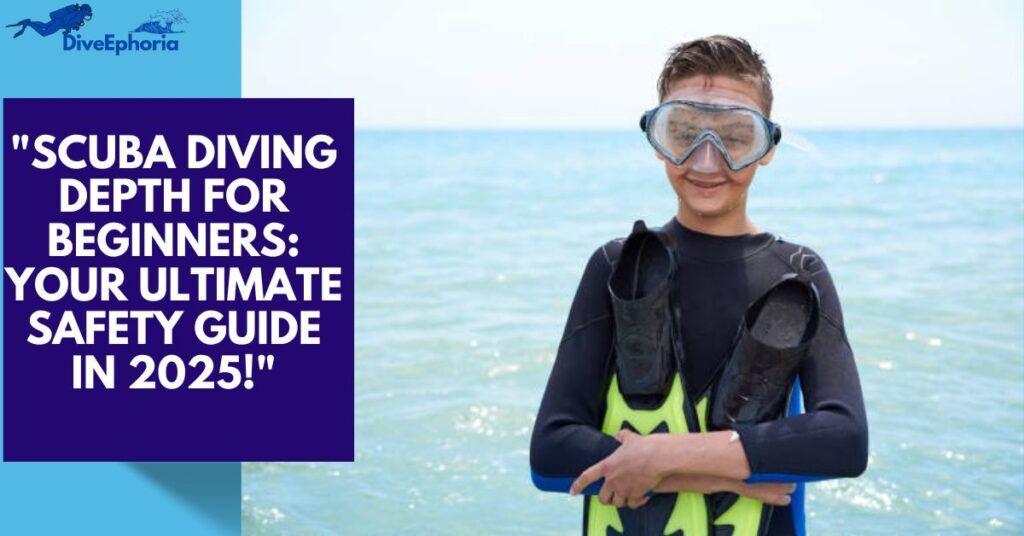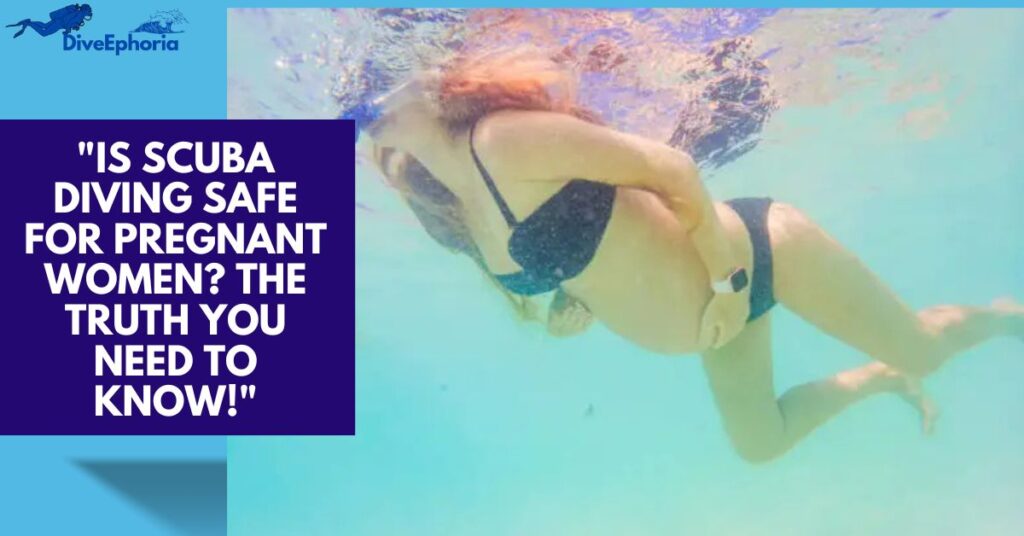
Table of Contents
Introduction
Scuba diving is an exhilarating adventure that allows enthusiasts to explore the underwater world. However, for expectant mothers, the question arises: Is scuba diving safe for pregnant women? This is a crucial concern, as pregnancy introduces physiological changes that could impact a diver’s health.
In this comprehensive guide, we will examine the risks, medical opinions, and expert recommendations regarding scuba diving during pregnancy. By the end of this article, you will have a clear understanding of whether it’s safe to dive while expecting and what alternatives may be suitable.
Understanding Scuba Diving and Pregnancy
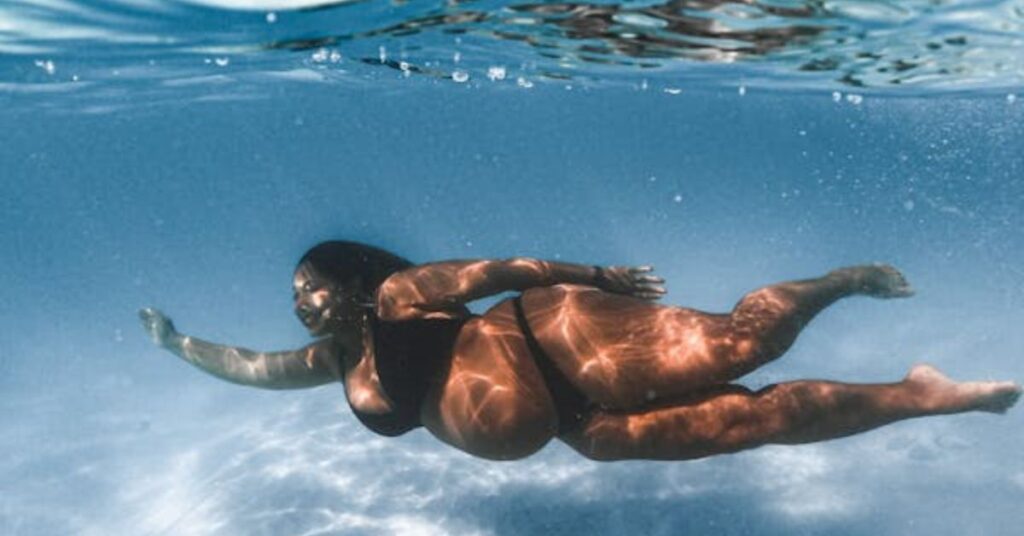
Pregnancy is a delicate period that involves significant changes in the body, such as increased blood volume, elevated heart rate, and shifts in oxygen consumption. Given these transformations, activities like scuba diving require careful consideration.
The Science Behind Scuba Diving and Its Risks
Scuba diving involves breathing compressed air at varying depths, which increases exposure to nitrogen. This raises concerns such as:
- Decompression Sickness (DCS): Nitrogen absorption increases with depth. Rapid ascent can cause nitrogen bubbles to form in the bloodstream, leading to DCS, which may pose risks to the fetus.
- Oxygen Toxicity: Higher oxygen levels at depth can have unknown effects on fetal development.
- Physical Stress: Pregnancy already places stress on the cardiovascular system. Diving adds additional strain, potentially leading to complications.
Diving Risks for Expectant Mothers
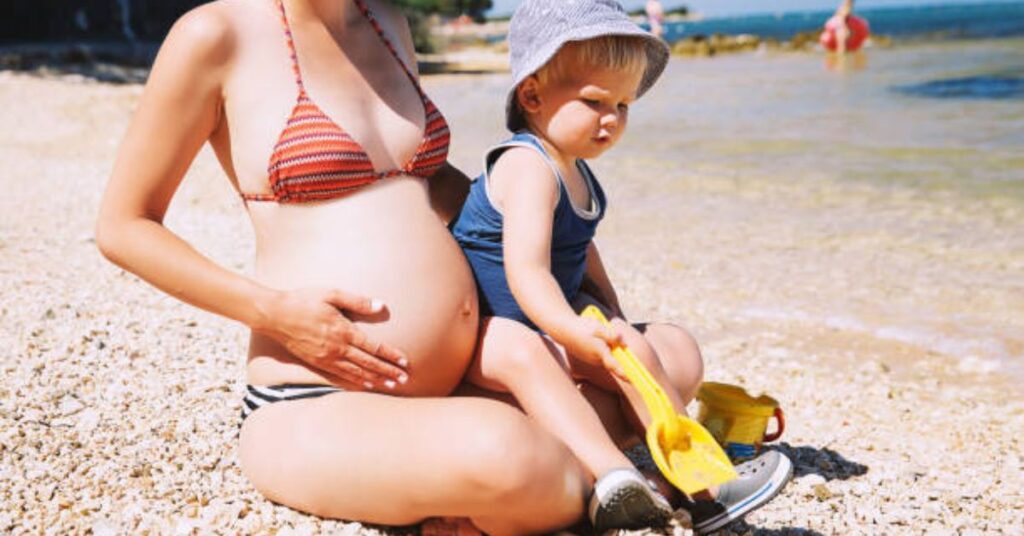
1. Decompression Sickness and Fetal Risks
The placenta does not filter nitrogen bubbles efficiently. If a pregnant diver experiences decompression sickness, the fetus is at risk of gas embolism or developmental complications.
2. Increased Risk of Miscarriage
Studies suggest that engaging in high-risk activities during early pregnancy can lead to miscarriage. The added stress of diving may increase this risk.
3. Buoyancy and Balance Challenges
The body’s center of gravity shifts during pregnancy, making it harder to maintain balance underwater. This can lead to unintentional falls or injury.
4. Potential Hypoxia (Low Oxygen Levels)
A fetus relies entirely on maternal oxygen supply. If the mother experiences hypoxia due to breath-holding or inefficient gas exchange, it could negatively impact the baby.
Medical Opinions on Underwater Diving and Pregnancy
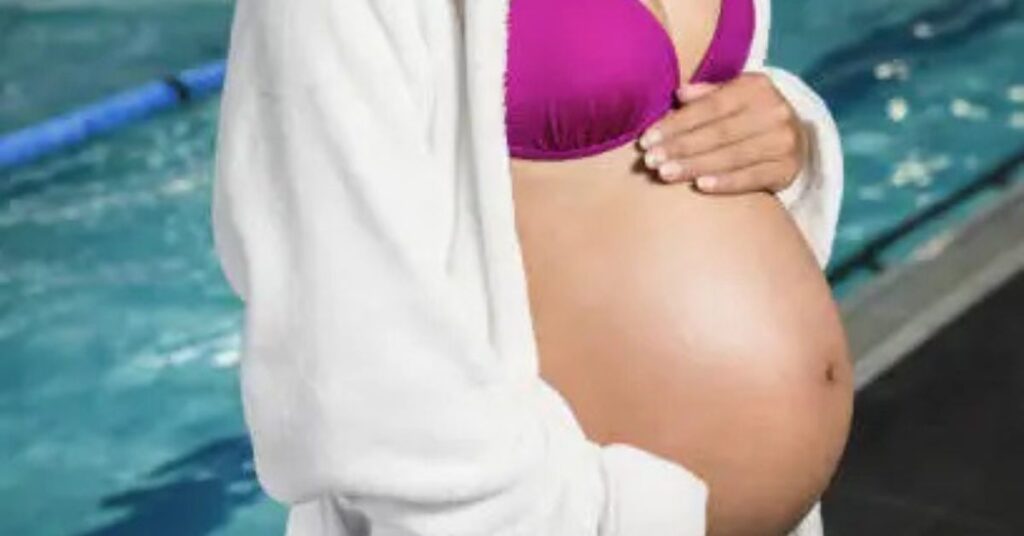
Medical organizations like the DAN (Divers Alert Network) and ACOG (American College of Obstetricians and Gynecologists) recommend against scuba diving during pregnancy due to the unknown risks to fetal health.
A 2016 study published in the Journal of Obstetrics and Gynaecology found that pregnant divers had a higher risk of fetal complications than non-divers.
Dr. Jane Holloway, an expert in maternal health and scuba diving, states, “Because we lack sufficient studies on fetal responses to compressed air exposure, the safest recommendation is to avoid scuba diving while pregnant.”
Safe Alternatives to Scuba Diving During Pregnancy
For women who love the water, safer alternatives include:
- Snorkeling: Allows underwater exploration without deep pressure exposure.
- Swimming: Maintains fitness and is a low-impact exercise.
- Freediving (Shallow Depths): With caution, shallow freediving may be safer than scuba diving.
Conclusion
So, is scuba diving safe for pregnant women? The consensus among medical professionals and diving organizations is a resounding no. The unknown risks to the fetus outweigh any potential benefits of diving. Expectant mothers are advised to explore safer water activities until after childbirth.
For those passionate about diving, it’s best to wait until post-pregnancy and then ease back into the sport with medical clearance. Meanwhile, activities like snorkeling and swimming can provide the joy of underwater exploration without the associated risks.
If you found this guide helpful, explore our blog for more expert advice on diving safety and gear recommendations!
FAQs
Can I go scuba diving if I’m in the first trimester?
Most doctors advise against diving at any stage of pregnancy due to unknown risks.
Are there any documented cases of fetal harm due to diving?
While no large-scale studies confirm fetal harm, case reports suggest potential risks, including miscarriage and congenital abnormalities.
Can I scuba dive if I use a rebreather?
Rebreathers still expose divers to nitrogen and oxygen fluctuations, making them unsafe during pregnancy.
When can I resume scuba diving after childbirth?
It depends on your recovery. Most women can dive 6–8 weeks postpartum, but consult your doctor first.
Is snorkeling safe for pregnant women?
Yes! Snorkeling is a safe and enjoyable way to explore the underwater world without pressure risks.

